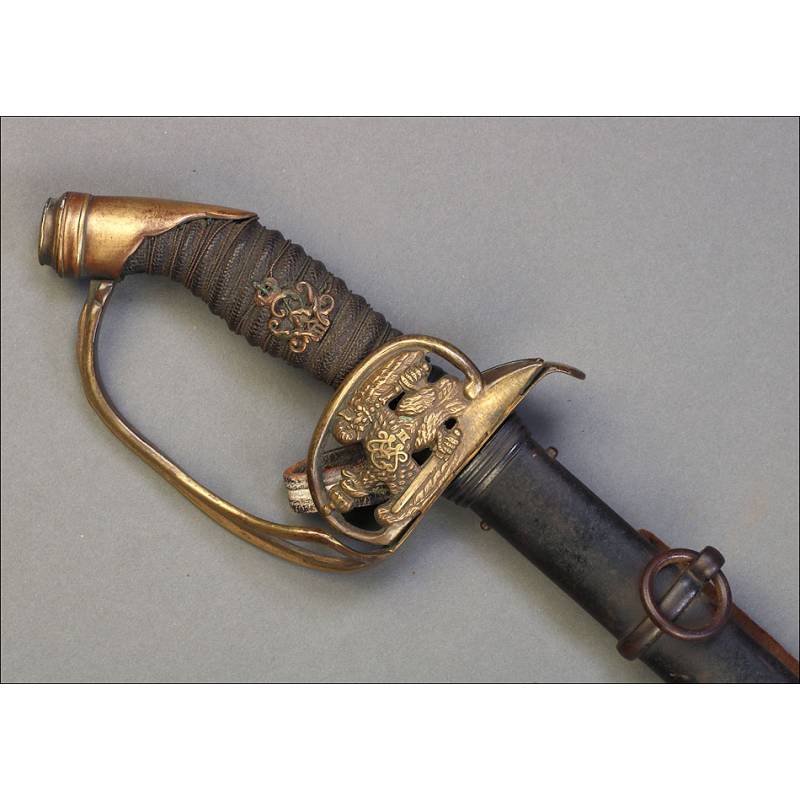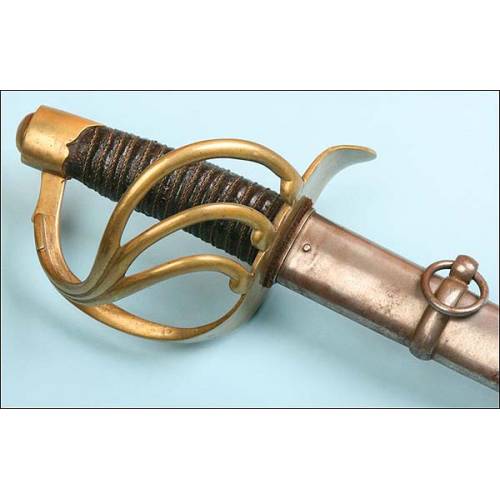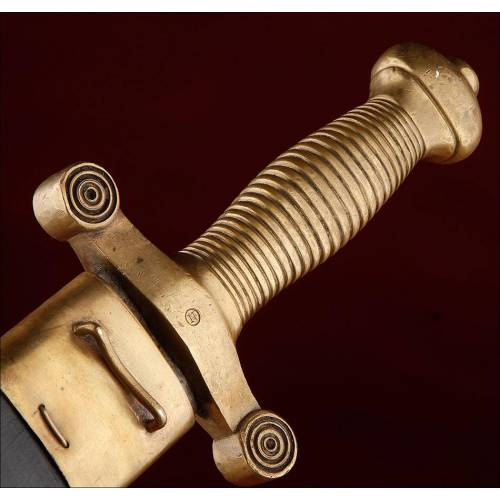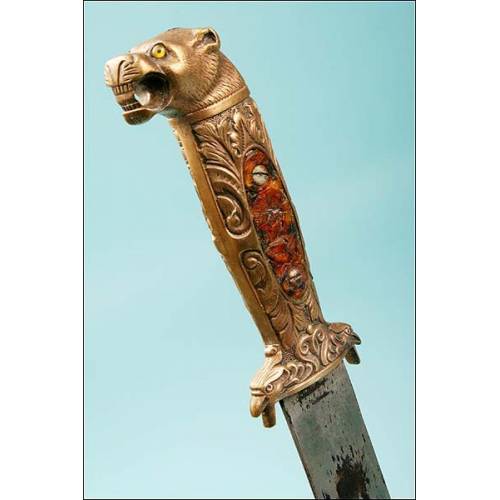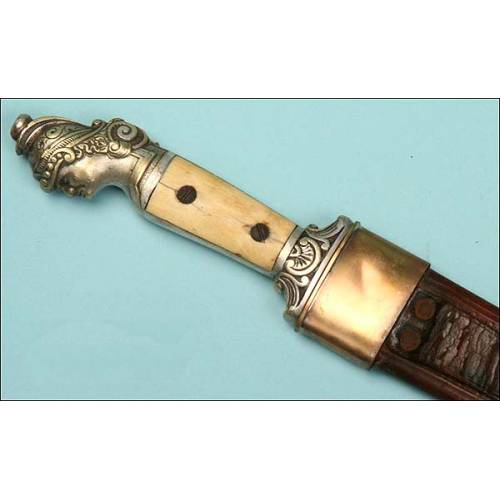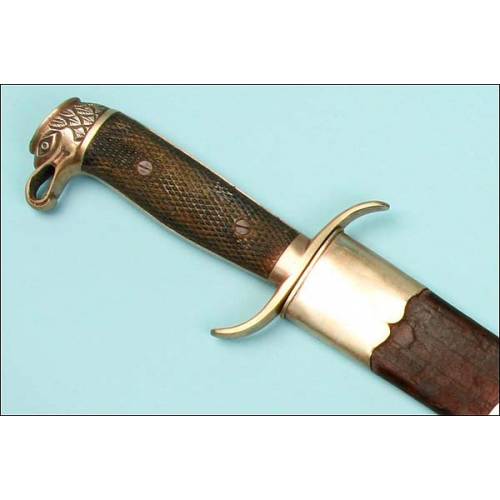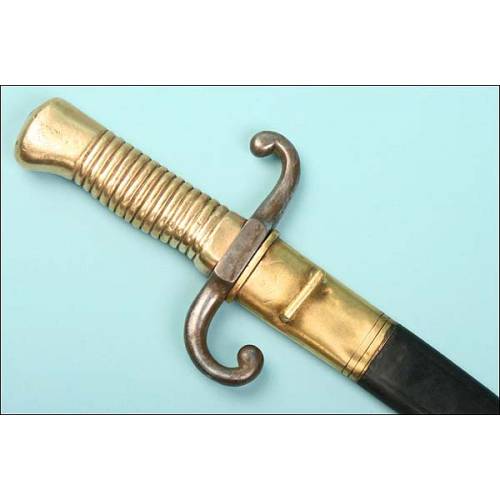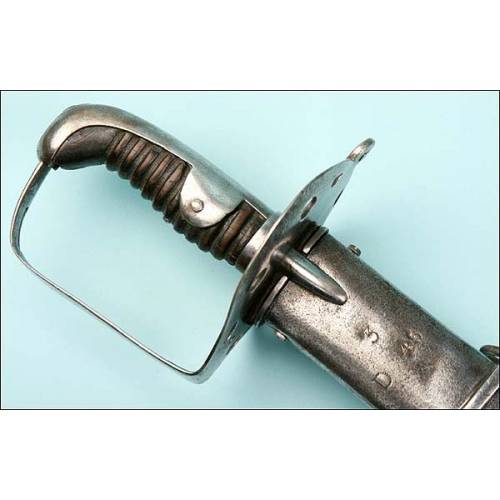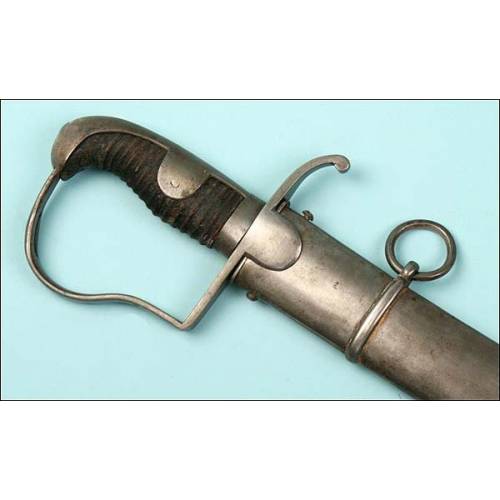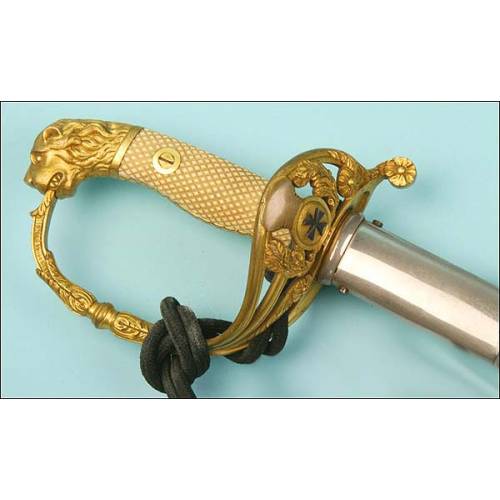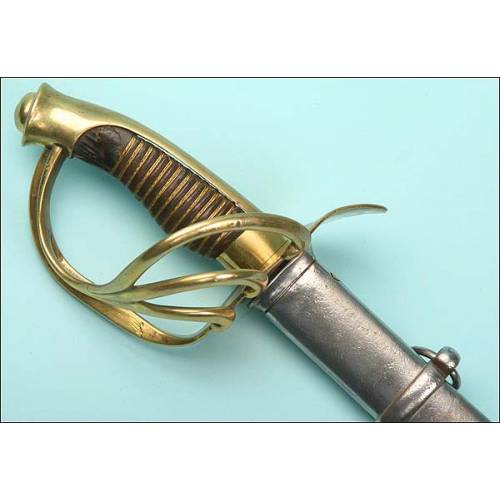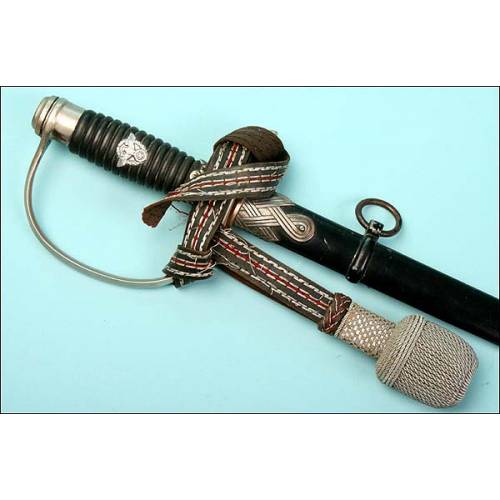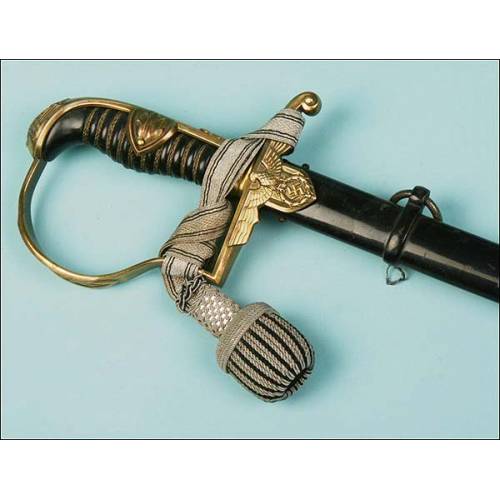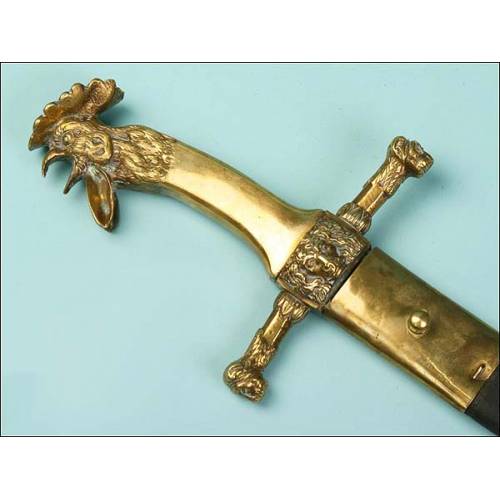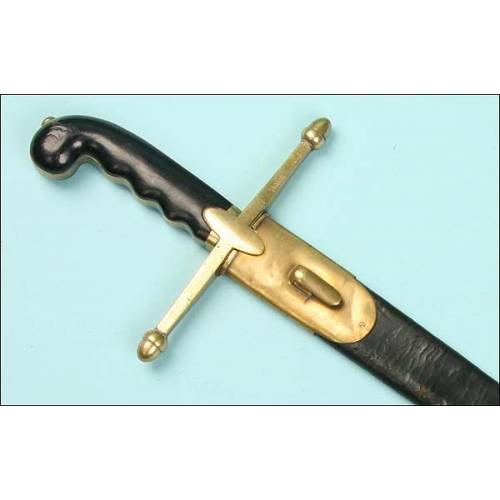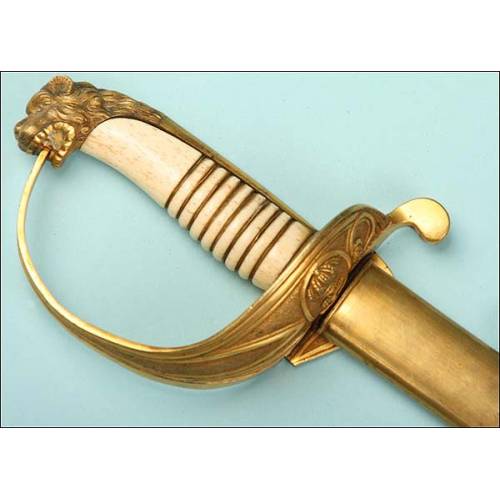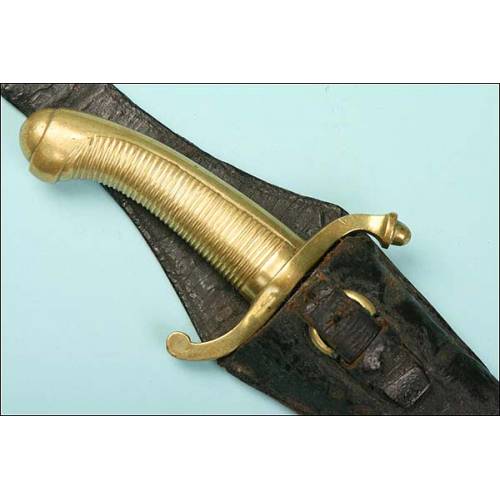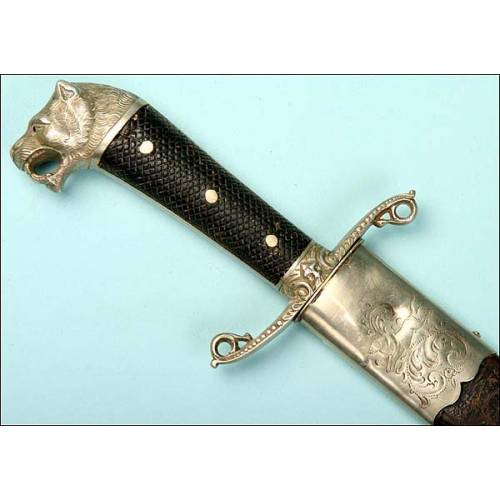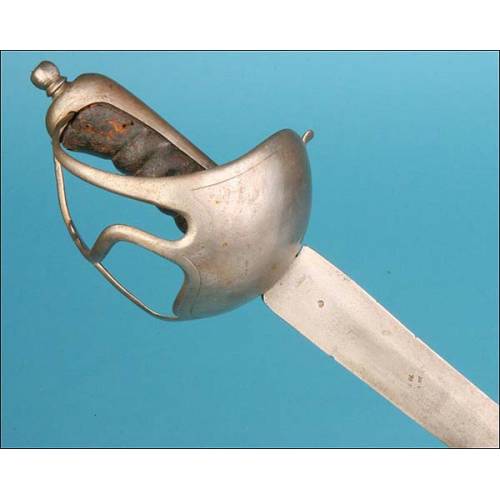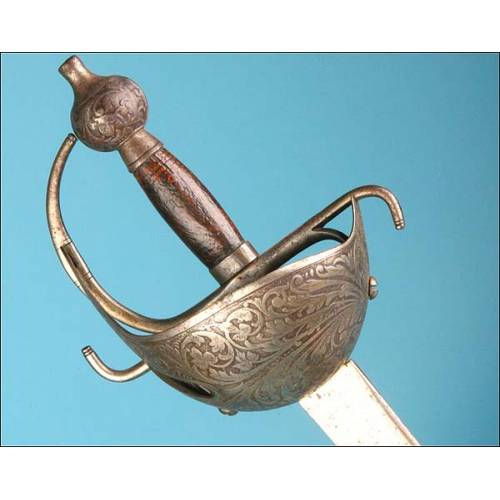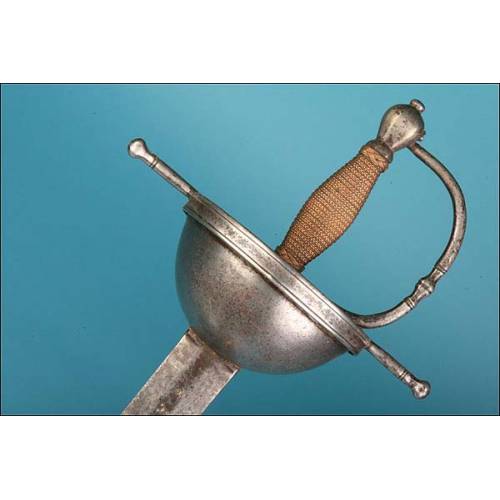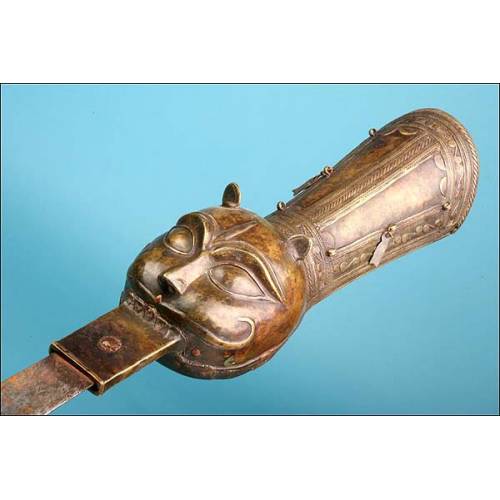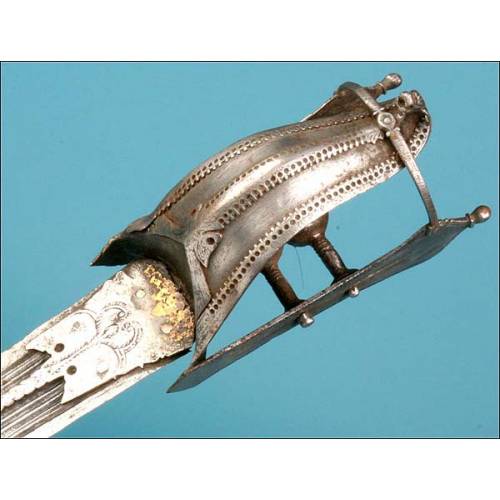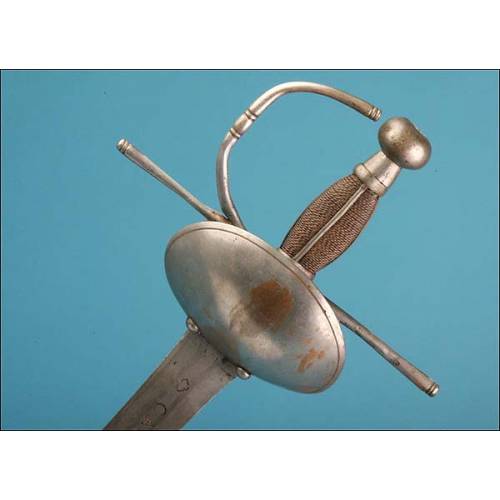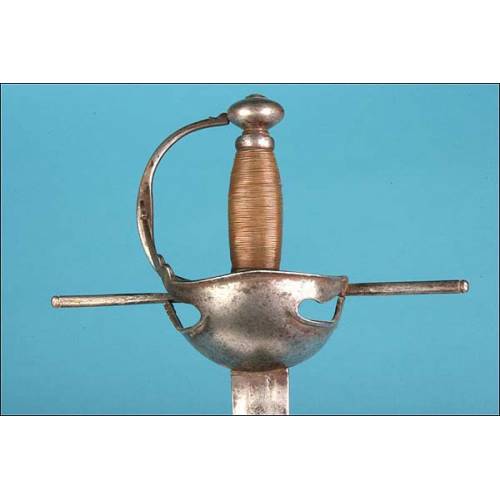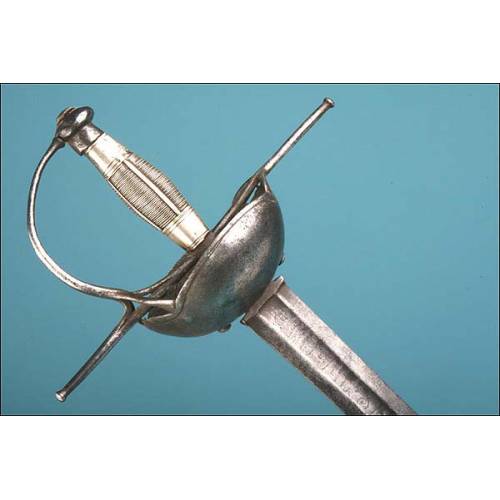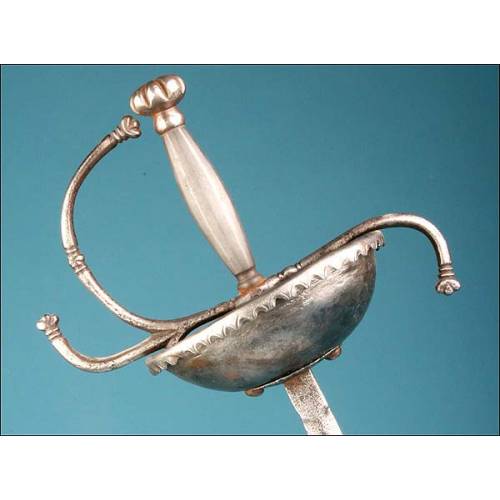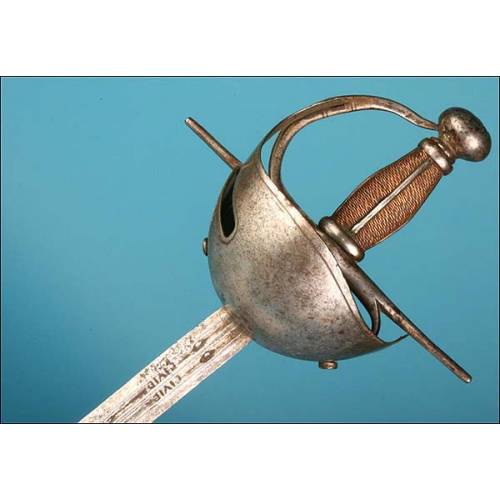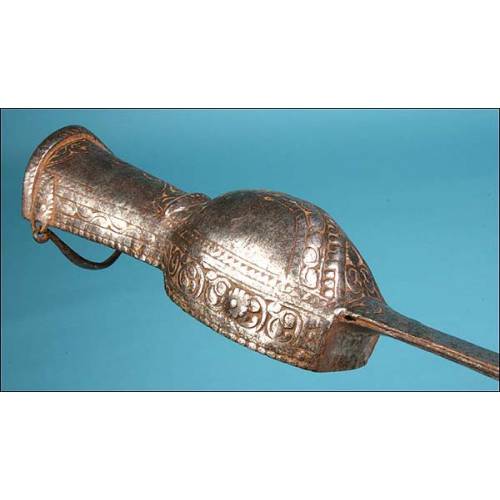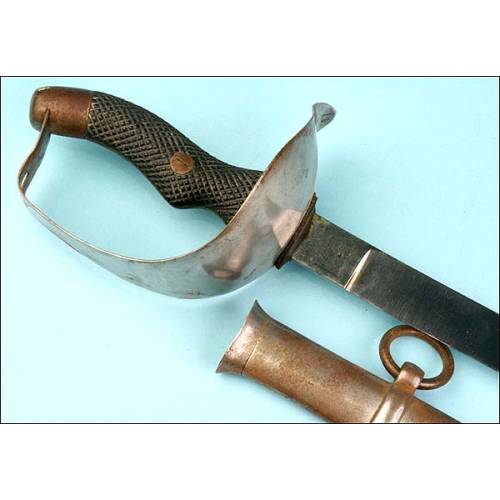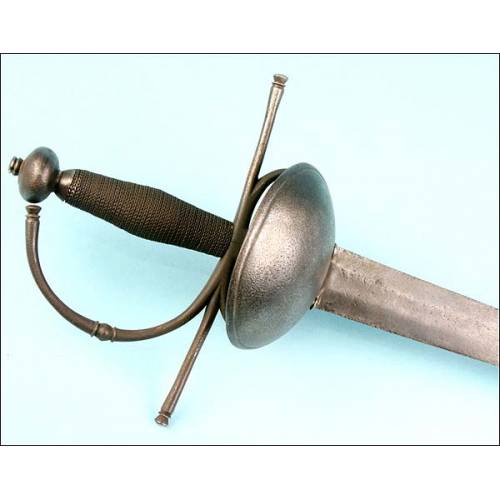C-850
Antique Prussian Infantry Officer's Sword. Model 1889. Germany
Superb Prussian infantry officer's sword or saber model 1889. With folding handguard and scabbard. Retains the original patina.
Sold!
Awesome Prussian infantry officers sword of saber model 1889. This gorgeous antique piece comes from Germany and is more than one century old, being also in the amazing condition that we can appreciate in the images. The sword is complete and comes with its original scabbard. The scabbard and the hilt show off a lovely original patina created by the trace of time; we have decided to maintain this patina in order to keep intact the pieces charm. The ancient age of this weapon and the fact that the blade has been sharped suggest that it could have engaged in combat. The sword is signed by Weyersberg & Kirschbaum Co. Solingen, a famous Germany sword factory still active. The swords hilt is made of brass and is greatly preserved. It is a foldable element: both the cross-guard and the D-guard can be folded. The cross bears the embossed image of a crowned eagle holding a scepter and a sword in its claws. The bird also shows a monogram in front of its chest; this detail is also present in the grip. The grip preserves the original leather and twine in good condition, as well as the brass pommel that connects with the D-guard. The golden metal shows off a gorgeous reddish patina that enhances the swords beauty. At the top part of the blade, close to the hilt we can see the engraved inscription W. K. & C.: they are the initials of the manufacturing company. Last but not least, the black metal scabbard still preserves the original leather strap bound to hang the sword from the uniform. This striking Prussian infantry officers sword model 1889 is bound to reign in a stately living room or as part of the most ambitious collection of antique weapons. Measurements: Total Length: 34.4 in / 86 cm. Blade Length: 28.4 in / 71 cm.Weyesberg, Kirschbaum & Cie - History Weyesberg, Kirschbaum & Cie (WKC) is a sword manufacturing company which was founded in Solingen, Germany in 1883, when two existent business (WR Kirschbaum & Cie and Gebruder Weyesberger) merged. According to the regulations of the Solingen guild of sword makers, each employee was specialized in one particular task. The business used classic traditional techniques to make their swords and kept on growing; in 1900 they were the strongest company of Solingen. In those days the factory also made weapon component parts, bicycles and motorcycles. In 1922 the firm was bought by a former provider which maintained the original company name. In the 1930s the business went into decline as they became a key target of the alley bombs during World War II. When the content ended, WKC recovered their strength and was bought by different owners. They started to manufacture firearms too. During the last decades the business has specialized in ceremonial swords; currently they manufacture swords for West Point cadets (USA), among other customers.

